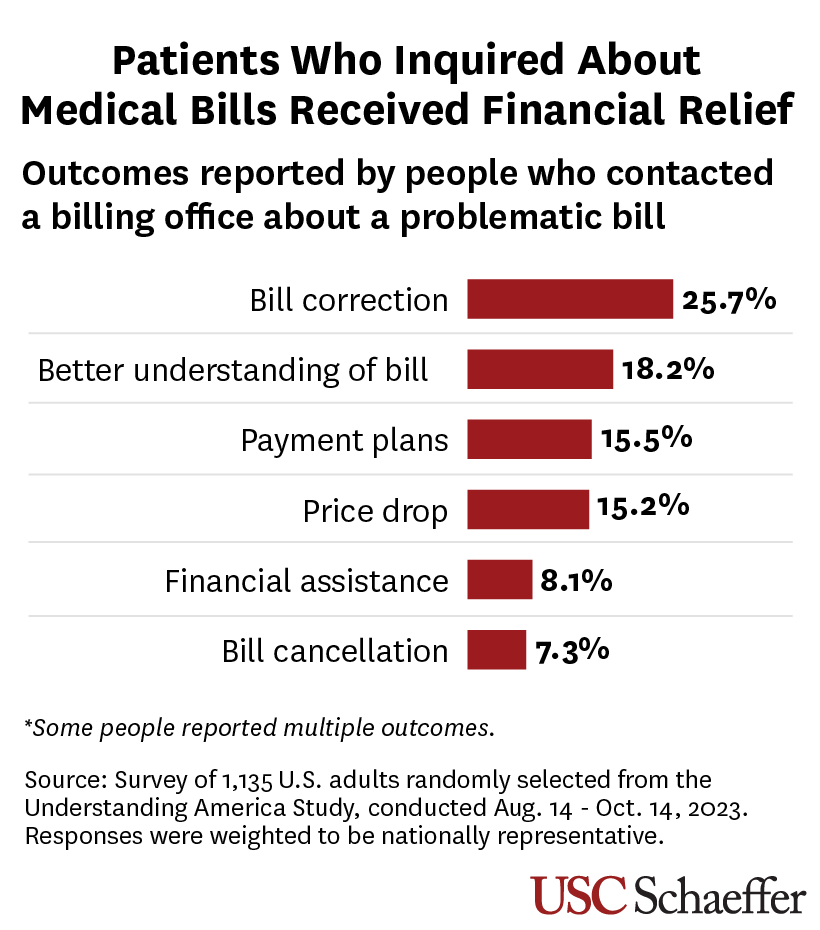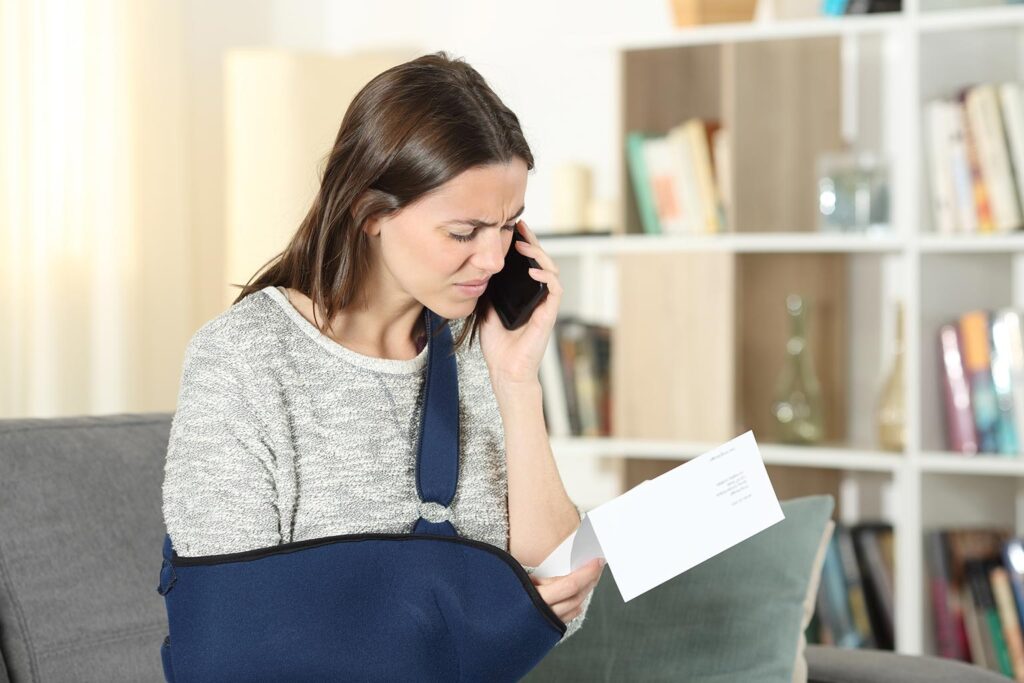Many people who receive a problematic medical bill don’t challenge it—but new USC Schaeffer Center research shows they are likely missing out on a chance for financial relief.
About 1 in 5 people said they recently received a medical bill they disagreed with or couldn’t afford, and 61.5% of those individuals said they contacted a billing office to address their concern, according to survey results published Aug. 30 in JAMA Health Forum. Most who reached out said they received some form of payment help or had their bill corrected.
It’s often up to patients to figure out for themselves if a medical bill is incorrect or how to secure financial assistance for a large bill. However, many people may think it’s too complex or too time-consuming – and ultimately not worth the effort. Of those who didn’t contact the billing office about a problematic bill they received, 86.1% said they didn’t think it would make a difference.
“Many people are hesitant to pick up the phone to question the accuracy of a problematic medical bill or explore financial options, but our findings indicate it’s worthwhile and typically takes less than one hour,” said lead author Erin L. Duffy, director of research training at the Schaeffer Center.
The study included 1,135 U.S. adults randomly selected from the Understanding America Study at USC Dornsife’s Center for Economic and Social Research between August and October 2023, and responses were weighted to be nationally representative.
Overall, about 1 in 4 who reached out for any reason had their bill corrected, while about 1 in 7 received a payment plan or a price drop. Smaller shares got financial help or had their bill canceled.

Taken together, these outcomes made a meaningful difference to patients, the researchers said.
For instance, 74% of those who said they specifically reached out about a billing error said the mistake was corrected. Of those who reached out about an unaffordable bill, 76% said they received some form of financial relief. For those who sought to negotiate, 62% said the price was dropped.
Most people who reported personally contacting a billing office about a problematic bill did so by telephone. The vast majority said they were comfortable communicating with the billing office, and most said the process took less than an hour and that they were treated with respect.
The likelihood of receiving a problematic bill did not significantly vary by health insurance source, education or income. However, people without a college degree, those with lower financial literacy and those lacking health insurance were less likely to contact a billing office, potentially exacerbating disparities in who’s burdened by medical debt.
Meanwhile, people who are more extroverted and have a less agreeable personality type, according to a commonly used standardized personality assessment, were more likely to reach out about a problematic bill.
Researchers said providing patients with more detailed written information about their bill and payment options when they’re billed could encourage more people to seek out relief.
“Current healthcare billing practices generally require patients to practice a lot of self-advocacy, and those who cannot self-advocate well are missing opportunities for financial relief,” said Erin Trish, study co-author and Schaeffer Center co-director. “Simpler billing processes and more transparency about financial options could make the system work better for patients.”
About the study
The study was co-authored by Melissa A. Frasco, a research scientist at the Schaeffer Center.
A joint enterprise between the USC Price School of Public Policy and the USC Mann School of Pharmacy and Pharmaceutical Sciences, the USC Schaeffer Center for Health Policy & Economics is a flagship program of the USC Leonard D. Schaeffer Institute for Public Policy & Government Service.
For more about this study, read Erin Duffy’s article in The Conversation.
Sign up for Schaeffer Center news


You must be logged in to post a comment.